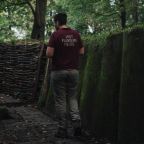
Economical Expeditions: How Travel Enhances Business Education
Business education today transcends traditional classroom boundaries, leveraging travel as a dynamic tool for learning. The fusion of academic theory and practical exposure gained through travel offers a profound impact on students' understanding of global business practices. This article delves into the myriad ways educational travel enriches the learning experience for business and economics students.
Real-World Economics: Learning Beyond Textbooks
Travel in the context of business education is more than just moving from one place to another; it's an immersive experience that brings textbook theories to life. When students visit financial hubs and industrial centres, they witness the practical application of economic concepts. For instance, seeing how a multinational corporation manages its supply chain or how a stock exchange operates in real-time adds depth to their theoretical knowledge, bridging the gap between academic concepts and real-world practices.
Networking Across Borders: Building International Connections
One of the most significant advantages of travel in business education is the opportunity for networking. Engaging with professionals, educators, and fellow students across different countries broadens the scope of understanding and opens doors to future collaborations. This aspect of travel is crucial in today’s interconnected global economy where relationships often dictate the trajectory of business ventures.
Innovation and Inspiration: Gaining New Perspectives
Business and economics trips are a hotbed for innovation and inspiration. Exposure to diverse business environments sparks creativity and helps students think outside the box. By observing how different cultures approach business challenges, students gain fresh perspectives that are vital for nurturing innovative thinking. This exposure is instrumental in shaping future entrepreneurs and business leaders who can think globally and act locally.
Leadership Skills on the Move: Developing Soft Skills Through Travel
Travel inherently challenges students to step out of their comfort zones, thereby enhancing soft skills such as adaptability, problem-solving, and communication. Navigating new environments, languages, and cultures develops resilience and leadership qualities. These skills are essential for business leaders who must often make critical decisions in unfamiliar or challenging situations.
From Local to Global: Understanding Market Dynamics
Understanding market dynamics is crucial in business and economics education. Travel allows students to observe how local markets operate within the global economy. This understanding is vital for grasping how global trends and policies impact local businesses and vice versa. Such insights are invaluable in a world where local events can have far-reaching international effects.
Sustainability and Ethics: Observing Global Business Responsibilities
Sustainability and ethics in business are more important than ever. Travel exposes students to different approaches to sustainability and ethical practices in various cultural and regulatory environments. Witnessing firsthand how businesses incorporate sustainable practices offers practical insights into the challenges and opportunities of responsible business conduct.
Final Thoughts
In summary, travel is a vital component of contemporary business education. It extends learning beyond traditional methods, offering a practical, real-world perspective that is indispensable in today's global economy. By combining theoretical knowledge with experiential learning, travel equips students with the skills, insights, and connections necessary to thrive in the complex world of business and economics. As the future of business education continues to evolve, the integration of travel into its curriculum will undoubtedly play a pivotal role in shaping competent, innovative, and globally-minded business leaders.
















